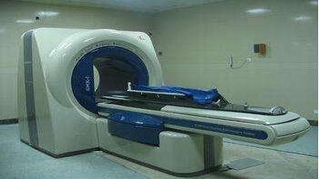由于抗癌藥物的持續(xù)給藥,引發(fā)左心室噴射分數(shù)顯著升高,,最終導致充血性心力衰竭,。常見的致心肌毒性反應的藥物如蒽環(huán)類藥物地高辛。
2015年4月在《Trendsinpharmacologicalsciences》(藥理學趨勢)雜志發(fā)表的一篇文章指出,,近年來越來越多數(shù)據(jù)表明,,心肌毒性反應與蒽環(huán)類藥物十分相關(guān),且能夠誘發(fā)劑量累的心臟損傷,,從而影響了此類藥物的使用,。人表皮生長因子(EGF)受體2(HER2;ErbB2)是治療乳腺癌的重要靶點。曲妥珠單抗(TRZ),,是人源化抗HER2單克隆抗體,,是目前推薦的第一線治療HER2陽性的轉(zhuǎn)移性腫瘤患者的藥物。曲妥珠單抗的使用也由于其可能誘發(fā)心臟功能障礙,,受到限制,。心肌毒性反應能夠產(chǎn)生游離鐵離子,從而誘發(fā)氧化應激反應,。目前有很多方法減小這類不良反應,,但大多處于臨床前研究狀態(tài)。文章還指出目前還有一類新方法是通過個性化治療癌癥,,包括通過分子篩查檢測基因突變,,然后進行個性化臨床治療。
英文原文:
Trends Pharmacol Sci. 2015 Apr;36(4):226-235. doi: 10.1016/j.tips.2015.02.005. Epub 2015 Mar 7.
Anthracyclines/trastuzumab: new aspects of cardiotoxicity and molecular mechanisms.
Rochette L1, Guenancia C2, Gudjoncik A2, Hachet O2, Zeller M3, Cottin Y2, Vergely C3.
Author information
Abstract
Anticancer drugs continue to cause significant reductions in left ventricular ejection fraction resulting in congestive heart failure. The best-known cardiotoxic agents are anthracyclines (ANTHs) such as doxorubicin (DOX). For several decades cardiotoxicity was almost exclusively associated with ANTHs, for which cumulative dose-related cardiac damage was the use-limiting step. Human epidermal growth factor (EGF) receptor 2 (HER2; ErbB2) has been identified as an important target for breast cancer. Trastuzumab (TRZ), a humanized anti-HER2 monoclonal antibody, is currently recommended as first-line treatment for patients with metastatic HER2+ tumors. The use of TRZ may be limited by the development of drug intolerance, such as cardiac dysfunction. Cardiotoxicity has been attributed to free-iron-based, radical-induced oxidative stress. Many approaches have been promoted to minimize these serious side effects, but they are still clinically problematic. A new approach to personalized medicine for cancer that involves molecular screening for clinically relevant genomic alterations and genotype-targeted treatments is emerging.







